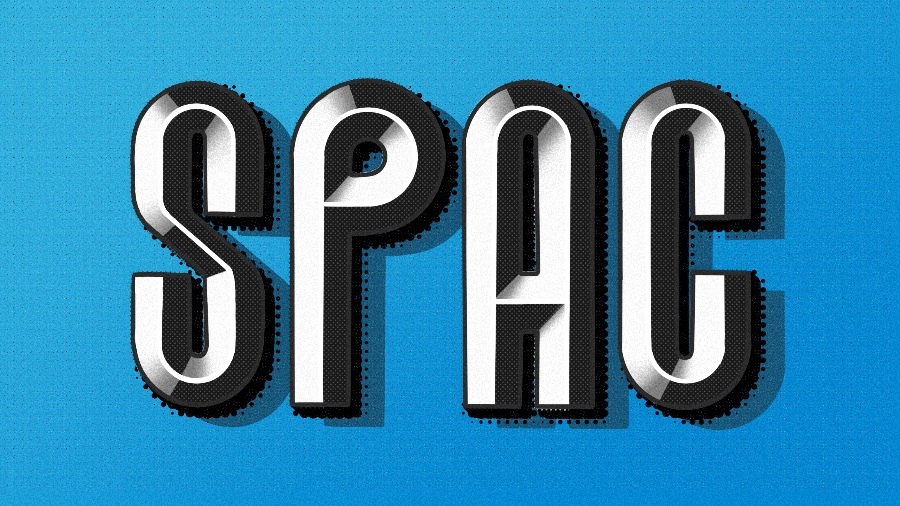SPACs may be fizzling out.
Subscribe to the Crunchbase Daily
Since February 2021, when the SPAC (special-purpose acquisition company) craze was booming, a market selloff has wiped out about $75 billion of the value of companies that went public using SPACs, according to a Dow Jones Market Data analysis of figures from SPAC research. The analysis examined a group of 137 companies that went public using SPACs by mid-February this year. According to the analysis, these companies have lost 25 percent of their combined value since then. Over the same period, the Dow Jones Industrial gained 13 percent.
What are SPACs?
SPACs are “blank check” companies created solely to raise capital through an IPO in order to subsequently merge with private companies to take them public. SPACs were first created in the 1990s, but didn’t gain popularity with investors until recently. According to Dealogic, SPACs raised a record $107.6 billion in funding in the first half of 2021 (compared to $83 billion in all of 2020). SPACs are an alternative way for companies to go public in which the funds are first raised in an IPO by experienced investors, followed by a merger with the target company. Electric truck startup Nikola and sports-betting operator DraftKings are among the large firms that went public in 2020 through SPAC deals.

From the perspective of the acquired company, the SPAC process provides several benefits, one of which is the ability for earlier stage companies to go public. Generally, the companies have lower revenue and less-established business models, and are still incurring significant losses.
It also provides for greater market certainty on the share price at which the company goes public, especially in volatile market conditions as the acquisition price is pre-negotiated with the SPAC. Finally, it provides access to experienced managers from the SPAC that can guide the company in its growth phase after it goes public.
SPACs have been raised by a range of well-known individuals–former House of Representatives Speaker Paul Ryan has a SPAC, as does Oakland Athletics executive Billy Beane and brash Silicon Valley investor Chamath Palihapitiya.
SEC regulation
Given the explosion in SPACs, it is no surprise that the U.S. Securities and Exchange Commission is increasing its scrutiny over the practice. The SEC cracked down on SPAC accounting in April by issuing accounting guidance that would classify SPAC warrants as liabilities instead of equity. This affects not only deals in the pipeline but also existing SPACs that need to recalculate their financials in 10-Ks and 10-Qs for the value of the warrants each quarter. As a result of the crackdown, the booming market for SPACs has slowed to a crawl.
The coming bust
Under the rules governing SPACs, they have 24 months to find a target company to merge with–otherwise, they must return the money to their investors. Currently, according to analytics site Alpha, there are 426 SPACs that need to find a target company, otherwise they must be wound down. While a number of these target companies were interested in going public using a SPAC merger, that interest has cooled in recent quarters. In the digital media space, for example, while Forbes and Buzzfeed are going public using a SPAC, companies like VOX Media, Vice Media and Axios are either having trouble consummating a SPAC merger or are not interested in going public in this manner.
Typically, SPAC sponsors take very little risk in consummating a merger, even with a poor target whose share price declines after going public. With SPACs taking a beating this year, the number of quality companies available for merger may be few, which will invariably result in bad deals and press and eventually lead to strong regulation.
Shirish Nadkarni is a serial entrepreneur with 25+ years of creating consumer businesses that have scaled to tens of millions of users worldwide. He engineered Microsoft’s $400 million acquisition of Hotmail, launched MSN.com, and founded Livemocha, which pioneered social language learning and was acquired by Rosetta Stone. He is the author of “From Startup to Exit: An Insider’s Guide to Launching and Scaling Your Tech Business.”
Illustration: Dom Guzman

Stay up to date with recent funding rounds, acquisitions, and more with the Crunchbase Daily.


![Illustration of a guy watering plants with a blocked hose - Global [Dom Guzman]](https://news.crunchbase.com/wp-content/uploads/quarterly-global-3-300x168.jpg)
67.1K Followers